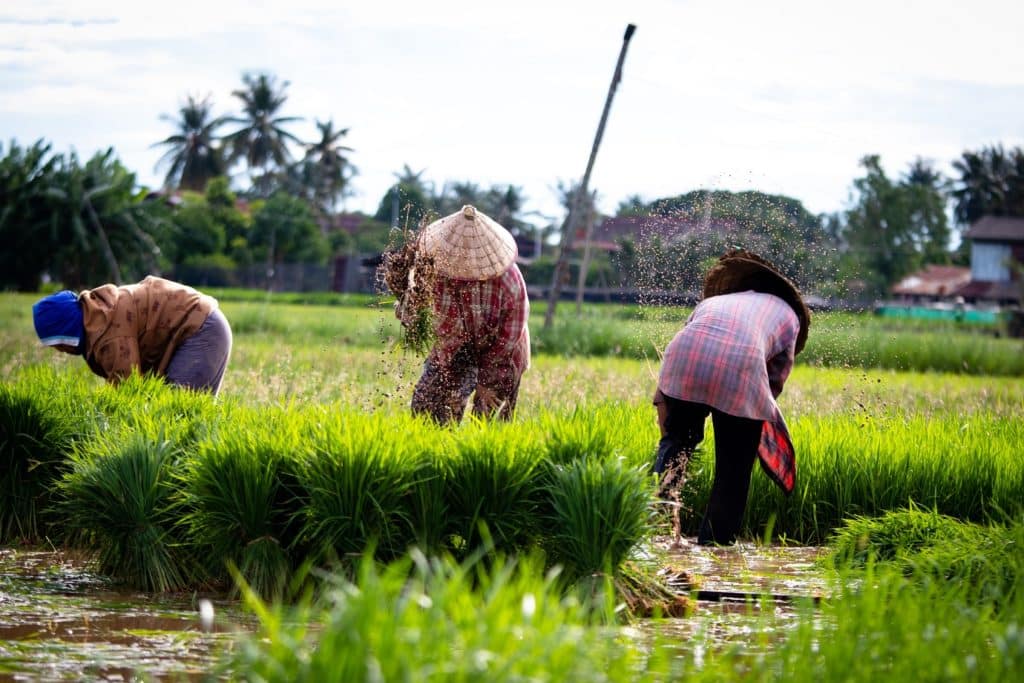I’m a volunteer firefighter, I spend an evening each week with my local brigade to refresh my skills and learn new ones in the event disaster strikes – because eventually, it will. At the time of writing, I’ve received four separate emergency alerts within two days.
I’m a newbie, having only moved to my town last May. It felt important to be a part of our community, defending the people, homes, and nature that matters the most. But it also felt urgent. Climate change is changing Australia; impacting weather patterns and making droughts, floods, heatwaves and fires more intense and frequent.
These changes are happening all over the world. Floods ravaged Pakistan last year, killing more than 1,700 people. Kiribati declared a state of disaster in 2022, after years of below-average rainfall saw a deficit in clean drinking water for the population. Climate change isn’t a problem that exists out of sight or out of mind – eventually, climate change will impact everyone around the world.
For most of us living on this continent, we are lucky to be supported by services and volunteers who help to minimise the impact of disasters. But that is not the case everywhere – poverty, race, and gender can radically reduce your chances of getting help when you need it most.
In the Asia-Pacific region, women and children are up to 14 times more likely than men to die or be injured in a disaster or its aftermath. This is a shocking statistic and complicated to understand why.
Firstly, women and girls face more pressure to take on additional labor when disaster strikes and food and water become scarce. In many countries, women and girls are expected to provide an unfair share of unpaid work such as raising children, working in farms and gardens, and housework. Often overlooked is the fact that women and girls constitute over 40 per cent of the world’s agricultural workforce, and are responsible for 60-80 per cent of food production. But food security programs, and even small business loans, ignore the specific needs of women. These services can fail the people who need them the most.
Secondly, access to healthcare services becomes more difficult. Sexual, reproductive, maternal and menstrual support needs are often overlooked – which can have particularly devastating effects for pregnant women, as critical health conditions can be missed. Extreme heat can even increase the incidence of stillbirths.
Climate-related disasters leave women increasingly vulnerable to other health and safety risks, with women more likely to be harmed due to disparities in information, mobility, decision-making, and access to resources, and health services.
Thirdly, recovery efforts can sometimes focus too much on rebuilding infrastructure or returning men to formal work – and don’t account for the informal work that women are responsible for. This means men are supported to recover more quickly, while women and children, older people, people with a disability, and others who rely on them are all left behind.
This is why CARE focuses on supporting women to defeat poverty. When one woman escapes poverty, she brings four people with her – it’s an incredibly powerful multiplier.
With climate-related disasters becoming more frequent, CARE supports local women to lead recovery efforts, and we’re amplifying the voices of these powerful women leaders.
Celina Guterres, a woman who participated in CARE’s Australian Government-funded Disaster Ready program in Timor-Leste, said: “We participate to learn so that when the disaster hits, we already know how to evacuate ourselves. We can also pass on information to our friends, especially to other women and women who are pregnant and breastfeeding.”
Celina’s story is one of thousands of women across the region learning to defend their communities. I wish she had access to the incredible opportunities that I do to protect her home and her family. That’s why CARE’s work is so important, when women have the chance and the resources, they lead their communities to safety and prioritise the needs of the most vulnerable.
The specific needs of women across the region must be included in Australia’s responses to climate change and in our disaster planning. This cannot be an afterthought. The best way to do that is to deliberately include the voices of women from affected communities at the very start, and all the way through. As one of the wealthiest, and most polluting, countries in the region, we really have no excuses.
I feel very lucky to live in a community with so many neighbours who are ready to face the worst if we have to. Helping one another is the key to overcoming the impacts of climate-related disasters, and also solving global poverty. Doesn’t everyone need good neighbours?


